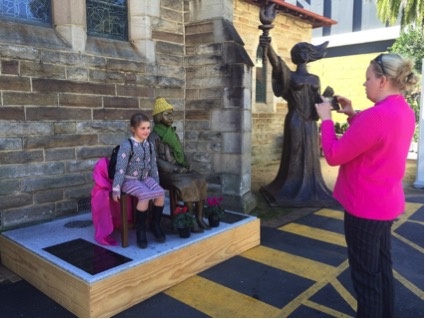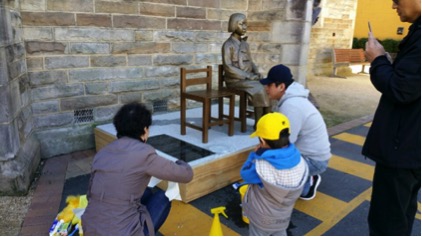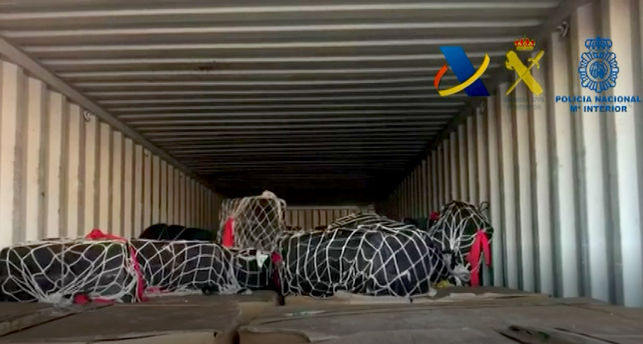2015年12月、慰安婦問題に関する日韓合意が発表された直後、私は1月12日に以下の記事をアゴラに投稿しました。
この記事の中で、私は日本側が政府の国庫から韓国の財団に拠出した10億円と、公式の安倍首相の謝罪という大きな譲歩(肉を切らせて)の代わりに、長年の懸案事項であった慰安婦問題を両国家間の合意によって最終的かつ不可逆的に封じ込めることができた(骨を切る)とする日本側の外交的勝利を礼賛する一部保守陣営の見解について、日本対世界という観点から見れば、まさに骨を断たれたのは日本側であると真逆の見方を提示しました。
容易にひっくり返すことができる合意(現実に、ムン・ジェイン政権は昨年12月28日にちゃぶ台返しを行った)による一時的外交成果よりも、「日本政府が過去に幼い少女たちを拉致して性奴隷にしたことは歴史的事実だと日本政府が正式に認めた」とする認識が世界中に定着することの方が、日本の外交、安全保障にとって遥かに大きなダメージになるのです。すでに反日勢力は日本はホロコーストに匹敵する人権犯罪を行った国と、国連、各国のメディアや教育機関などに訴えています。
日韓合意破たんを伝える海外主要メディア(ロイター、ガーディアン、BBCなど)の記事に目を通しましたが、まとめると、おおむね次のような論調です。
第2次大戦中、日本が日本軍のために占領地域(主に朝鮮半島)から集められ、兵隊用売春宿で強制的に性奴隷として働かされた約20万人の若い女性達をめぐるセンシティブな問題を解決するため日韓両政府が2015年末に形成した合意を、ムン・ジェイン大統領は「この合意では慰安婦問題を解決できない」と意見表明し、次の外交的対処の検討を政府スタッフに命じた。日本政府はこれに反発し、合意の見直し、再交渉の要求には応じない構えだ。
すべての記事の中で性奴隷と20万という数字が既定の事実として扱われています。具体的な表現についてはこの記事の最後に記載の表現リストを参照ください。
ムン・ジェイン大統領が日韓合意の否定を公式表明し、合意破棄、または再交渉に向かって走り始めた今、これでまた日本が外交的に優位に立ったと言い切る方々にもう一度私が書いた上記のアゴラ記事を読んでいただきたい。韓国の慰安婦合意検証タスクフォースによる検証内容を発表し、韓国大統領が上記の所感を表明して以来、世界のメディアが書いた記事の論調(上記)を読めば、いかに日本に対するネガティブ・プロパガンダによる日本の貶めが成功し、日本が追い込まれているかよくわかるでしょう。
私たちのような海外に住む邦人にとって、今回のように各国のメディアによる、事実を無視した日本非難の繰り返しと刷り込みはたまりません。日本国内に住む方々には、海外在住の邦人や日系人がこのような記事が出るたびに周囲から非難の目にさらされ、質問に対しどう答えたらいいか困惑している姿や、これらの記事を読んだ外国人の大人が彼らの子供たちに日本と日本人をどう説明するかを想像していただきたい。
民族に対するヘイト感情はいったん刷り込まれると、それを修正することは容易ではなく、現実にそれが原因で米国や豪州で日系人に対する差別やいじめが発生しているのです。

オーストラリア Uniting Church Ashfield内敷地に建てられた慰安婦像を見せられる子供たち(出典:豪州の“反日”グループFCWAのFacebookより)

日本政府に望みます。山岡鉄秀AJCN代表が提言しているように、「反論より立論を」という立場で日本側の主張を整理し直して、まずは世界に対する日本政府の立ち位置を示す外務省のサイトを作り直していただきたい。これがすべてのスタートです。これは邦人保護の観点からも極めて重要です。
日本政府はこれと連動して「強制連行された性奴隷を使っていた日本と日本人」という印象操作(ネガティブ・プロパガンダ)を明確に否定する立論を世界に発信しなければなりません。そして、日本語の紙面では誤報を認め読者には陳謝したが、今も英語記事で言葉を変えた誤報を全世界に垂れ流している朝日新聞をはじめとする個別のメディア、出版社、教育機関等に、認識の修正を強く働きかけねばなりません。
今までの外務省の活動はせいぜい個別の団体(市とか裁判所)や個人に対する「慰安婦像の設置は日本政府の立場と相いれない」などという立脚点が不明瞭な働きかけくらいでしたが、これでは米カリフォルニア州サンフランシスコ市やジョージア州のブルックヘブン市での結果を見る通り、効果はありません。
日韓合意でなぜ謝罪をしたか、日本政府関係機関の関与とは何であったのか、併合(Annexation)と植民地化(Colonization)との違いを含む新たな立論と慰安婦の定義(Licensed Prostitutes for Military Troops)に沿ってもっと線、面での情報戦を展開しなければ中韓、北朝鮮による日米豪の分断戦略には勝てません。相手は民間団体と称していますが資金と情報、人材を中韓、北朝鮮政府から供給してもらっていますので、自腹で個別に活動している日系民間団体の劣勢は明らかです。「アヒルの水かき程度」の今までの外務省のやり方では焼け石に水です。外務省内が無理であれば情報戦を外務省から切り離した組織で展開してもらいたい。
—
江川 純世 AJCN(オーストラリア ジャパン コミュニティ ネットワーク)事務局長
——————————————————————————————————-
今回発信された海外メディアの記事中に見られる、日本及び日本人に対する固定化されたイメージを具体的な記述で確認してみましょう。
記事中の表現
■ “comfort women” forced to work in Japan’s wartime brothels
■ the comfort women, a Japanese euphemism for the thousands of girls and women, many of them Korean, forced to work in wartime brothels
■ provide the funds to help them heal “psychological wounds”
■ ”The agreement was not reconciliation, but an agreement not to talk about it anymore”
■ deal on wartime sex slaves
■ the “comfort women” – a euphemism for tens of thousands of women and girls, mostly from the Korean peninsula, who were coerced into working in Japanese military brothels before and during the second world war
■ failed to take into account the former sex slaves’ feelings
■ provide money as a humanitarian gesture to help heal the women’s “psychological wounds”
■ There is disagreement on the exact number of women forced into sexual slavery by Japan during its 1910-1945 colonial rule of the Korean peninsula. Campaigners say as many as 200,000 women – mostly Koreans, but also Chinese, south-east Asians and a small number of Japanese and Europeans – were forced or tricked into working in military brothels between 1932 and Japan’s defeat in 1945.
■ Oh said, according to Yonhap. “Receiving money does not mean that a crime is forgiven.”
■ South Korea’s foreign ministry has said a 2015 deal with Japan to compensate forced World War Two sex slaves failed to meet the needs of the victims.
■ South Korean activists estimate that up to 200,000 women were forced to work in brothels for WW2 Japanese soldiers.
■ The money was to come with an apology by Japan’s prime minister and the acceptance of “deep responsibility” for the issue. The majority of the comfort women were from Korea, while others were from China, the Philippines, Indonesia and Taiwan.
■ The majority of the comfort women were from Korea, while others were from China, the Philippines, Indonesia and Taiwan.
■ South Korean President Moon Jae-in says the country’s 2015 agreement with Japan to settle a decades-long impasse over Korean women forced into wartime sexual slavery is seriously flawed.
■ Historians say tens of thousands of women from around Asia, many of them Korean, were sent to front-line military brothels to provide sex to Japanese soldiers during World War II.
■ wartime sex slavery
■ the women forced to work as sex slaves, often known by the euphemism “comfort women”
■ Mainstream historians say up to 200,000 women, mostly from Korea but also other parts of Asia including China, were forced to work in Japanese military brothels during World War II.
■ over giving reparations to forced sex slaves
■ “comfort women,” who were enslaved in brothels for Japanese soldiers in World War II
■ Estimates suggest about 46 women who survived the wartime slavery are still alive in South Korea. About 200,000 women were enslaved in the wartime conflict and many of them are aging or have already passed away.













